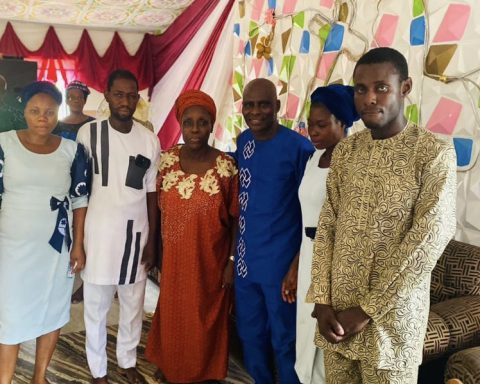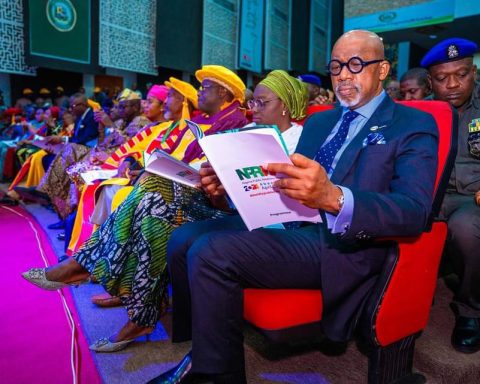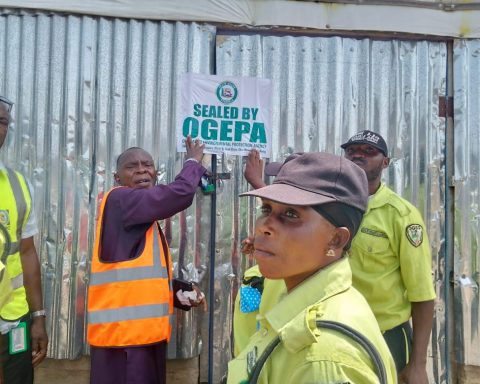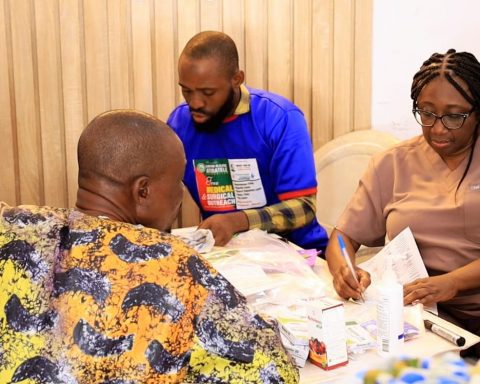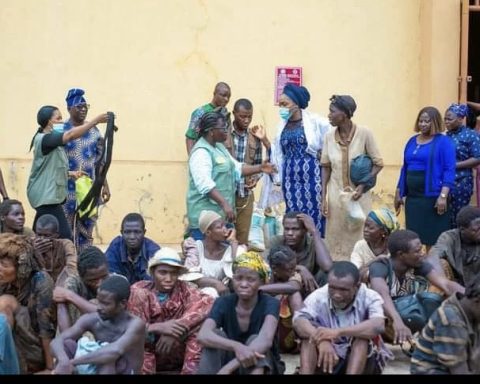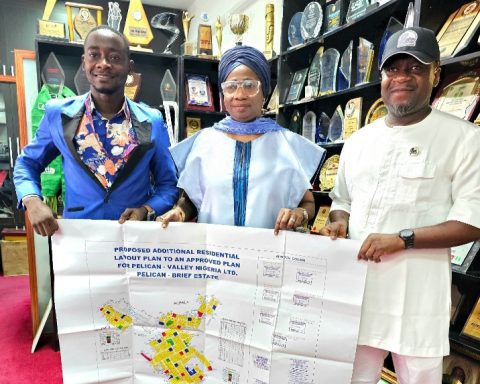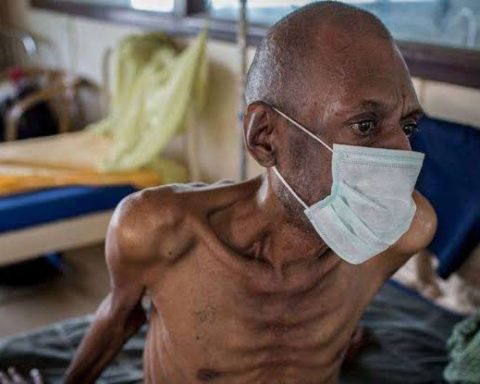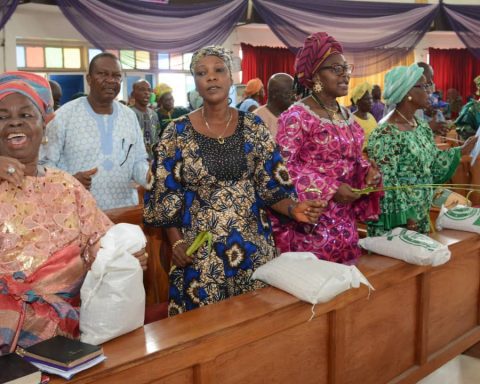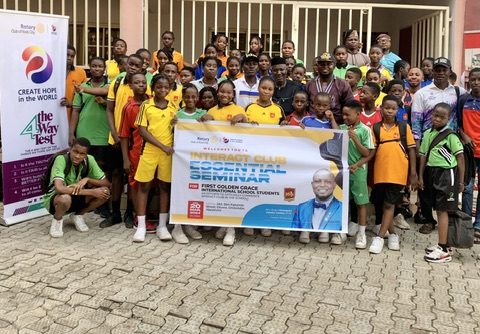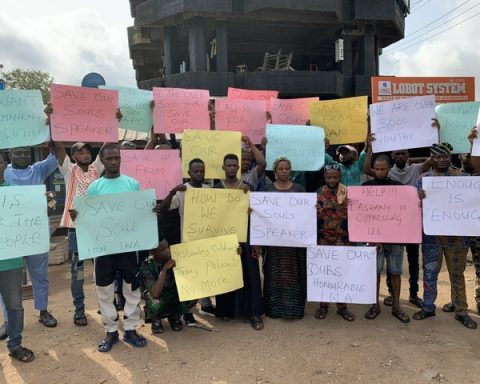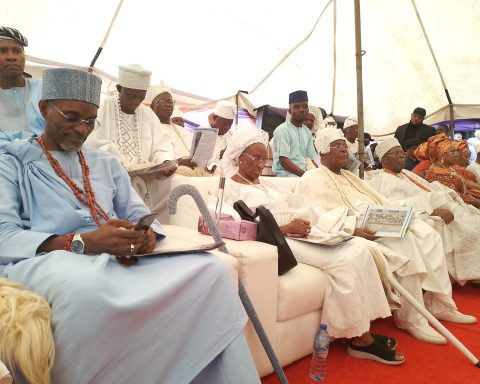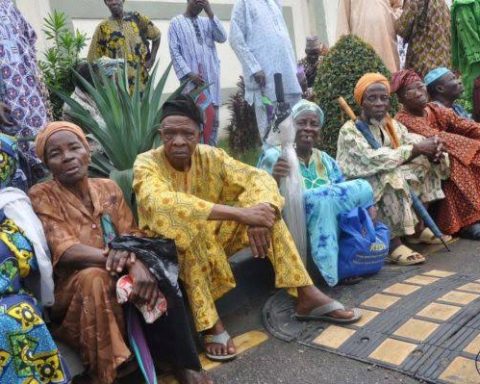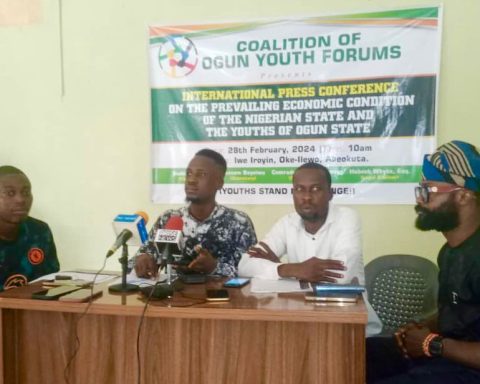The oro ritual/festival is an age-long customary practice which is common to the Yoruba peoples.The oro ritual could be carried out during the day or in the middle of night.
The ritual however, carries some rules which are not favourable in many situations. It is the rule that women are not permitted to see the persons who are carrying out the oro festival, in the case they mistakenly see the persons carrying out the ritual during the ritual hours, such women will be severely punished, some are put to death.
Another thing with the oro ritual is the restriction of movement it arbitrarily enforces on the people.
Where the ritual would be done during the day, persons would be told not to come out of their houses and continue to remain indoors for a certain time frame which the oro ritual would be carried out.
Advertisement


Same goes for the night, no one is to be seen in the middle of the night when the ritual is going on, especially the women, are not to be seen when the ritual is going on or death would be the case of such women.
All of this discrimination, restriction have brought negative effects and consequences on so many people and is now a backlash on the Nigerian constitution. The Nigerian law is clearly on the practices of the oro ritual. In law, there’s what is referred to as the validity test of customary law.
The legal basis of validity test for customary law is contained under Section 315(2), 1999 CFRN.
The validity test is to enable customary law to adapt and survive. It enables society to preserve customs which are just, humane and progressive and which has held the community together, whilst customs that are selfish, discriminatory, objectionable and unjust which are disallowed by the validity test are not enforced.
In Nigeria today, for a custom to be valid and enforced in our courts,it must pass the three (3) validity test which are;
1 The repugnancy test
2 The incompatibility test
3 The public policy test
Now, to be concise, the repugnancy test only holds that for a custom to be valid, it must NOT be contrary to natural justice, equity and good conscience.
As regards natural justice, where a custom does not allow a person who has been accused to tell his own side of the story and also allows a person who is complaining to be the judge in the matter, then such custom would be regarded as not valid.
As regards equity, a custom must be equitable and bring equity.
On the part of good conscience, it is a heart that is innocent, pure andimpartial. Customs must be pure and impartial; else it will be regarded as not valid.
In the case of MOJEKWU v. MOJEKWU where a custom discriminated against women from inheriting their father’s property, NIKI TOBI, J.C.A held thus; “…it is the monopoly of God to determine the sex of a baby and not the parents. Accordingly, for a custom or customary law to discriminate against a particular sex is to say the least an affront on the Almighty God Himself. Let nobody do such a thing. On my part, I have no difficulty in holding that the custom is repugnant to natural justice, equity and good conscience.”
The incompatibility test is one which holds that where a customary law has already covered an area of life and the Nigerian constitution also covers the same aspect of life, the customary law is to give way for the Nigerian constitution to take over.
It should be known that it is not just all the customs but customs which are clearly not in conformity with the principles of fairness, equality, good conscience.
Customs which involve slavery, discrimination or treating others as outcasts, less human or with indignity are clearly incompatible with the Nigerian constitution and cannot be enforced.
Customs should not tend to lead to a breach of peace, such as assault and battery, or damage to property but should promote the rule of law and justice.
In the case of Agbai v. Okogbue where a fashion designer in Aba whose sewing machine had been seized and would be released only when he joins an age group association of the village and could not opt out.
In the words of KARIBI WHYTE, J.S.C in this case; “Nobody can be compelled to associate with other persons against his will. Our constitution guarantees every citizen the freedom of choice.
Accordingly, any purported drafting of any person into an association against his will even if by operation of customary law is in conflict with the provisions of the constitution and is void.”
The public policy test means public welfare, public good and public interest. Public policy means the security and welfare of the individual and the state in general.
Suffices to state that where a custom will not be for public good and welfare of the public, it cannot be regarded as a valid custom.
Looking at the oro practices which restricts the movement of citizens, it is only incompatible with the constitution which guarantees the right to freedom of movement contained under Section 41, 1999 CFRN.
The fact that it discriminates against women is repugnant to equity as contained under Section 42, 1999 CFRN.
The dire consequences of death in the case of a woman seeing them is totally against the public policy test which is not in conformity with Section 14(2)(b), 1999 CFRN.
It is sufficient to state that such custom cannot be enforced in our court as it reeks illegality.
LEGALJOE who is also JOSEPH ALIU is a Legal Analyst and can
be reached via 09085773212,09131704196, aliujoseph085@gmail.com


















